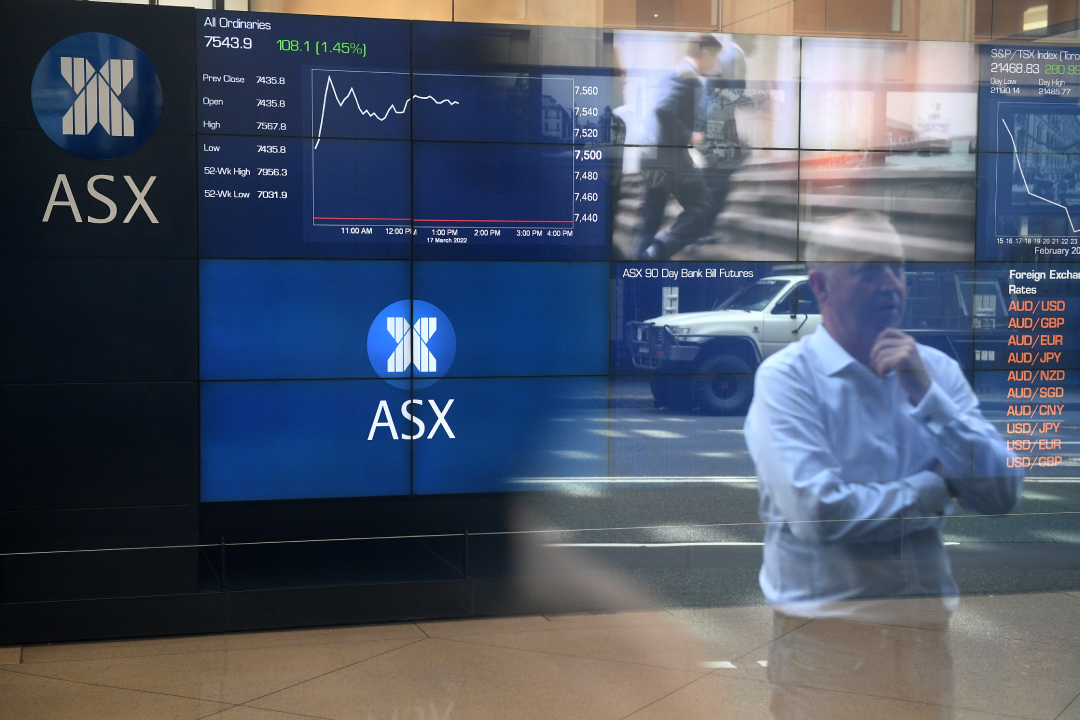

With Donald Trump’s policy shocks already rippling through markets, three top experts explain how smart investors can trade defensively, find opportunity, and stay one step ahead of the noise.
On last week's Switzer Investing TV, we spoke to three experts about how they're trading during the new Trump administration:
Together, these three represent a driving force to be reckoned with when it comes to investing in Australia. We asked them how they're fronting up to tackle investing in an age of uncertainty.
You would think - given we've seen him do the job once before - that we'd have something of a yardstick to measure and predict what Trump will do next in his current tenure as President. Not so, unfortunately, as markets have shown us in recent months since he took office.
You're not imagining it, either: markets are twitchier than usual. That's both thanks to global economic uncertainty and Trump in equal measure.
In the Trump era, headlines don’t just move the needle—they can flip entire sectors in a single session. Whether it’s tariffs, tax cuts, or a late-night post on Truth Social, the current former president has a track record of driving markets with speed and unpredictability. And with a possible second term on the horizon, investors are once again facing the chaos premium.
But this time, it’s not just Trump.
We’re navigating one of the most complex global environments in decades. Inflation remains sticky. Central banks are walking a tightrope between cooling prices and avoiding recession. Cost of living pressures are biting into discretionary spending. Supply chains are still vulnerable. And climate change is no longer a forecast—it’s a financial reality.
In short, the backdrop is noisy. And in noisy markets, strategy matters more than ever.
As Grady Wulff of Bell Direct puts it, “The market is trying to price in what a second Trump term means, but there’s a lot of chaos baked in.”
So how do smart investors cut through it?
Trump doesn’t just disrupt politics—he disrupts portfolios. That’s because markets don’t wait for policy—they react to tone, tweets, and trade talk instantly.
As Jun Bei Liu explains to Switzer Investing TV:
“The thing with Trump is that policy shifts can come out of nowhere, so you need to be prepared for very fast sentiment reversals.”
A recent example? Following Trump’s announcement of tariffs in April, almost every index across the board was in the red. Within a week, Australia's ASX 200 had dropped at speeds not seen since COVID-19.
It’s a reminder that volatility isn’t just back—it’s being invited in. And you need to be ready for anything.
Despite the uncertainty, there are clear beneficiaries of Trump-style economics.
Grady Wulff put it plainly:
“Anything exposed to US infrastructure spending or reshoring themes could benefit. That includes construction materials, defence contractors, and parts of the commodities supply chain.”
That puts companies like Caterpillar, Lockheed Martin, and Nucor in the US, and ASX-listed names such as Boral (ASX: BLD) and BlueScope Steel (ASX: BSL), on the radar of serious investors.
The Trump market isn’t kind to overvaluation—especially in sectors that rely on long-duration growth narratives.
Jun Bei Liu warns:
“If we get more tariffs or more trade noise, growth stocks are at risk of a re-rating.”
And Grady Wulff reinforces the trend:
“The market doesn’t have the same tolerance for unprofitable growth like it did five years ago.”
Tech stocks that trade on high multiples but have yet to deliver sustainable profits could face the brunt of any policy shocks—especially those tied to global supply chains or exposed to China.
When everything else gets noisy, defensives provide the ballast.
Paul Rickard says it comes back to quality:
“Think healthcare, consumer staples—anything with pricing power and low debt.”
Grady Wulff adds:
“A strong balance sheet is your best friend.”
ASX investors have long turned to names like CSL (ASX: CSL), Woolworths (ASX: WOW), and Ramsay Health Care (ASX: RHC) in turbulent times. These businesses offer dependable cash flows, lower economic sensitivity, and predictable earnings.
While Trump’s style of politics lends itself to big swings, the long-term investor still plays a different game.
Paul Rickard sums it up best:
“Trump headlines might move markets short term, but earnings still drive share prices in the end.”
Even when a Trump tweet knocks a stock down, it’s the earnings call—not the soundbite—that decides where it goes next.
So where’s the rotation headed?
Jun Bei Liu sees institutional behaviour shifting:
“The smart money is rotating out of overvalued tech and into things like energy, industrials, and selective financials.”
That’s a playbook built for a world where inflation sticks, policy risks rise, and fiscal spending fuels traditional sectors.
ETF flows, sector fund allocations and rebalancing activity all reflect this emerging bias—toward real assets and near-term earnings certainty.
The Trump market rewards preparation, not panic.
When volatility returns, investors who know what to watch—and why—will be the ones who hold their ground. As our experts show, the strategy isn’t about reacting faster. It’s about reacting smarter.
Volatility is inevitable. But for switched-on investors, it doesn’t have to be a threat. It can be a tool.
Disclaimer:
This article does not take into account the investment objectives, financial situation or particular needs of any individual. It does not constitute formal advice. Consider the appropriateness of the information in regards to your circumstances.
Before acting on anything we discuss, we strongly recommend you seek the appropriate professional advice.